Weather Window
This morning there was a two hour break in the weather. A helicopter was able to come into the valley and take one-half of our team back to the lab. Byron, Jeb, Matt, Andy and I stayed back at Lake Hoare. Tomorrow there won't be any flights because Sunday is a day off for the pilots. The five of us at Lake Hoare will head out in the morning to walk to Many Glaciers Pond where we need to collect samples. It has been great staying at Lake Hoare Camp; this is a fantastic field camp.
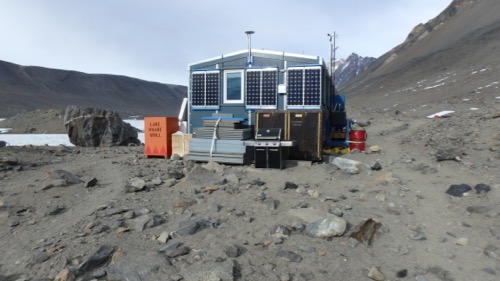
Lake Hoare Camp
Rae Spain and Renee Noffke are the camp managers at Lake Hoare. They spend the entire field season here at Lake Hoare and play a critical role in supporting all of the science that happens in the Dry Valleys. Lake Hoare Camp is a place where you get a warm welcome and an exquisite hot meal. Rae and Renee also coordinate the other field camps and helo-ops (helicopter operations) within the valley.
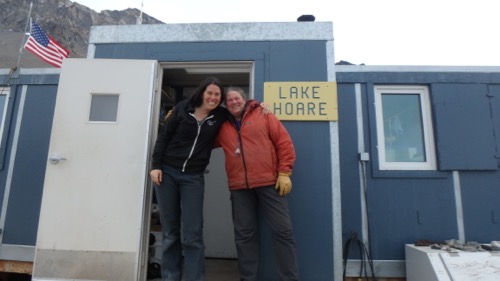
Energy at Camp
In a permanent field camp you need electricity and fuel for heating and cooking. Here at Lake Hoare most of the electricity is generated by solar panels and managed with batteries and an inverter. The solar panels must be rotated throughout the day to keep them oriented towards the sun. There is also a backup generator for times when there isn't enough sunshine to keep up with the electricity demands. The generator and heater run on diesel fuel. The kitchen stove runs on propane.
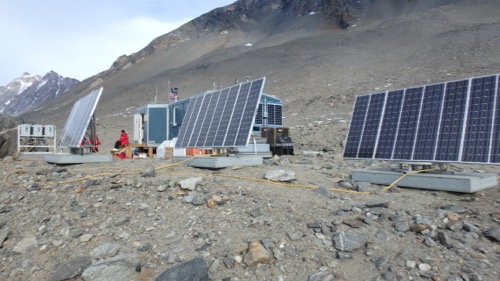
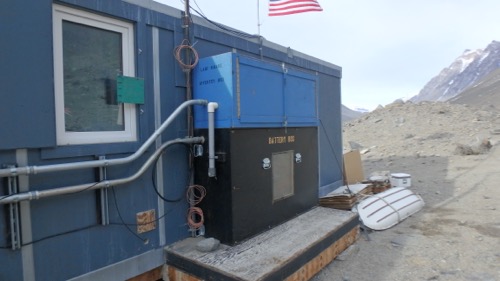
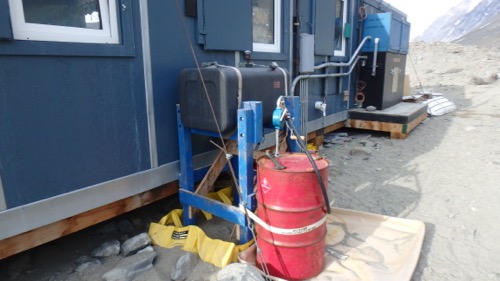
Water at Camp
Water for camp comes from chunks of the glacier that break off. These pieces of glacier are referred to as ice berries and the ice berries are melted for drinking and washing water. All of the grey water is collected in 55 gallon drums and shipped back to McMurdo. The water is used sparingly to save on the work of harvesting ice berries and more importantly to minimize the amount of waste water that is produced.
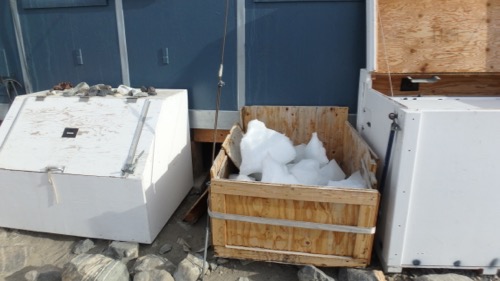
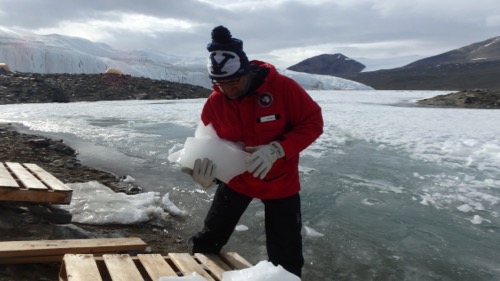
Bathrooms at Camp
One of the first stops on our arrival tour was the bathroom. There are multiple options at Lake Hoare Camp for going to the bathroom. There are toilets that empty into buckets. These human waste buckets are then taken back to McMurdo and then returned to the U.S. in shipping containers. Two urinals empty into 55 gallon drums. There are also two rocket toilets. The rocket toilets use propane to burn the human waste that accumulates into a small pile of ash. The ash is very light and non-hazardous so it can be flown back to McMurdo easily and disposed with the regular landfill material.
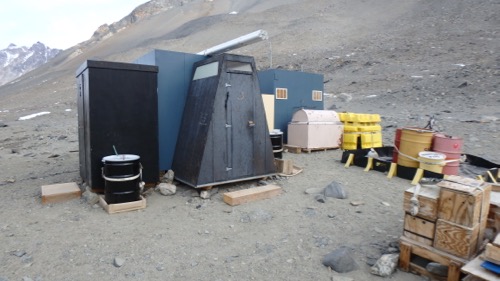
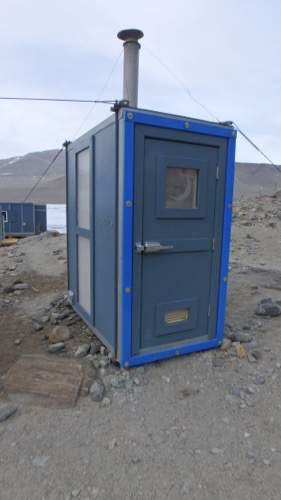
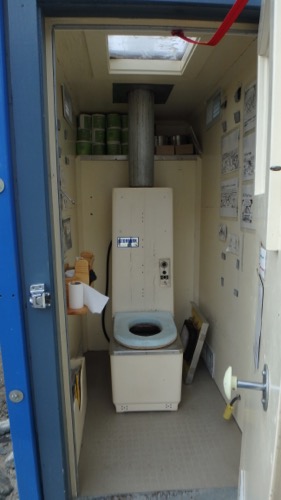
Science at Camp
The primary purpose of the camp is to provide a place for scientists to stay when their work requires them to be in the field overnight. Some projects require extended field stays or have samples that must be processed while still in the field. There are three science labs at Lake Hoare Camp to accommodate lab work while in the field. There is a radiation lab, a chemistry lab and an instrument lab.
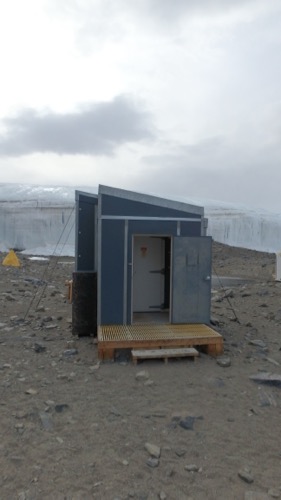
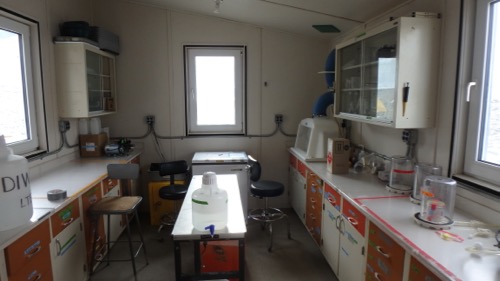


Comments